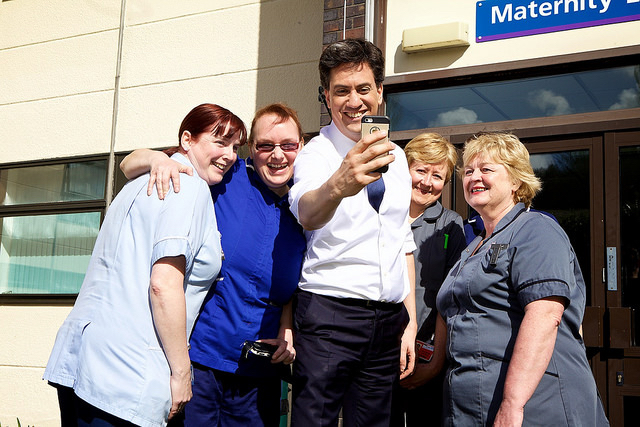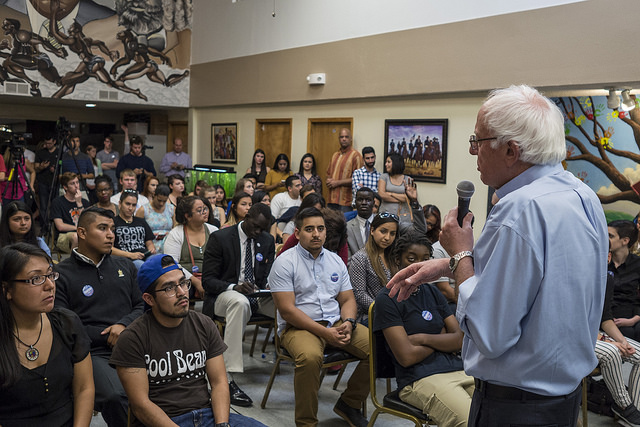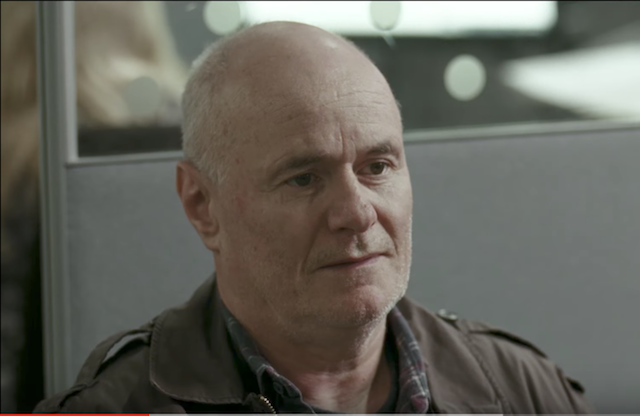The last ‘debate’ was somewhat uneventful. Except for one instance, Ed Miliband said he would not have a Labour government if it meant cutting a deal with the SNP. The statement has shocked progressives, but it has been welcomed by Blairites like Martin Kettle. Finally, the Labour leader had emitted yelping noises at the right pitch and sufficiently demonstrated his subservience. And yet it might not be enough to save his skin.
Should we be surprised? Not really. In his younger days Ed Miliband was one of the interns, who wandered the corridors of America’s liberal flagship, The Nation, where he encountered Alexander Cockburn. The Marxist firebrand caught the young man in his crosshairs and would later recount the details.
At a lunch with JoAnne Wypijewski and Rickie McKerrow, Cockburn began to prod at the intern for any discernible signs of energy and panache. “Eddie, is your hate pure?” Cockburn asked. The reply was pure timidity: “I… I… don’t hate anyone, Alex.” This answer did not satisfy Miliband’s accoster. As Cockburn had always maintained, practiced, and preached, for hatred to be effective it must be pure.
“It’s all you need to know,” Alex Cockburn recollected years later in CounterPunch. “English capitalism will be safe in his hands, assuming he ever grasps the levers of what passes for power in 10 Downing Street. It is very hard to imagine him as prime minister. He’s forever Fink-Nottle to me.”
The early signs of the Miliband leadership were not inspirational, let alone promising. He shirked from making promises early on, apparently to avoid commitments he couldn’t fulfil, as if the mass-media doesn’t already serve as an echo-chamber for lies. Yet the mainstream media demonised Ed Miliband almost from day one. All the while ‘Red’ Ed has consistently displayed the cowardice of his convictions.
Politics as Warfare
Many on the Labour Left will surely be asking themselves: “Why has Ed cornered himself over the SNP?” Labour veterans will remember, with no nostalgia whatsoever, the violent splits in the 1980s, which ruptured the party’s electoral chances, consigning it to the wilderness for the best part of two decades. The Miliband brothers became politically aware in this time. No doubt the two of them fear the wreckage of such factionalism.
The conventional wisdom claims the ‘hard’ Left concentrated around Tony Benn nearly destroyed the Labour Party. As if the record of stagnancy under Jim Callaghan and Harold Wilson had not dug a deep grave for Labour already. After all, the IMF imposed an austerity package on Britain on their watch. The 1979 defeat of the Callaghan government sprung open a space for contestation over fundamental questions.
The conventional wisdom claims the ‘hard’ Left concentrated around Tony Benn nearly destroyed the Labour Party. As if the record of stagnancy under Jim Callaghan and Harold Wilson had not dug a deep grave for Labour already. After all, the IMF imposed an austerity package on Britain on their watch. The 1979 defeat of the Callaghan government sprung open a space for contestation over fundamental questions.
Unlike many of his colleagues Tony Benn had been radicalised by the experience of government. He launched a campaign to restructure the party and make it accountable to its members. Of course, this would have also derailed the Labour Party from the centrist path it had taken since the War, but the point would be to turn a social democratic party into a democratic socialist party.
The former Prime Minister Jim Callaghan resigned as party leader to throw Labour into a leadership contest in 1981. He saw the writing on the wall and wanted to outmatch the Bennites. The leadership would be secured by Michael Foot and Denis Healey, who combined the ‘soft’ Left with the centre-right. It was the closest of votes, as Tony Benn lost by 0.5% – just one vote. Another self-professed “man of the left”, Neil Kinnock, had refused to back him and deprived him of the deputy leadership.
Michael Foot would be thrown overboard after the 1983 election. Neil Kinnock seized the leadership. It’s worth looking at the 1981 leadership contest just to read the statements made by Tony Benn, none of which could be mouthed by Labour politician today. In one speech Benn recounted the broken promises of the last Labour government before exclaiming: “We’ve tried to make capitalism work with good and humane Labour governments, and we haven’t succeeded because it can’t work, because it rests on injustice.”
Right Turn Ahead
In the meantime, the centrists of the party – Roy Jenkins, Shirley Williams, David Owen, and Bill Rogers – were conspiring to split and found a new party, the Social Democratic Party, with 10% of Labour MPs. These people, who had been embedded in the Labour establishment, feared the Left much more than Thatcherism. The SDP cut away at the Labour presence in Parliament, while Thatcher consolidated her position. It’s befitting that the SDP now props up the Conservative government.
The 1983 election confirmed the Thatcher government in its ascent, but more importantly, it consolidated the reforms it had introduced. The Falklands War was the first pivotal victory, and the second would be the 1984-85 miners’ strike. The material basis for the shift from social democracy to neoliberalism had begun to take shape in the early 1970s during the energy crisis. Profitability would be restored by pinning down wages and severing all restraints on the banks. Credit would substitute for the collapse in earnings.
In the midst of this international shift, the Labour Party appeared lost. Neil Kinnock was left to capitulate at every turn, as the ground was being laid for Blairism to take hold. By now Ed Miliband was probably interning in the US, while his brother David was writing Kinnock’s speeches. The Fabian socialist tradition would soon mutate into neoliberal reformism, the Blairites would promise boundless growth to buttress profits and wages. The commitments to nationalisation and redistribution would be discarded to the wasteland of dead ideas.
Now faced with the rise of the SNP, Ed Miliband cannot admit the obvious. He has avoided challenging the Blairites to produce a meaningful programme of reform. Miliband remains wedded to the centre-ground, as it was defined during the Blair era, failing to see that the old formula cannot be applied again and again. But it’s not the case that there are many other options left for the Labour leader. So Miliband has to walk the plank, it would seem.
The Labour Party is about to lose its heartland to the revitalised forces of Scottish nationalism. Without the Scottish seats, Labour will face an uphill struggle to any kind of victory. The Blair years of triangulation may well have earned the party the fate it deserves. The social base has changed, and Labour faces the real possibility of losing its roots to new movements. For this reason, it’s safe to say: if Miliband wins, worse than Hollande; if Miliband loses, worse than Kinnock.
Photographs courtesy of the Labour Party and the Department of Energy and Climate Change. Published under a Creative Commons license.






